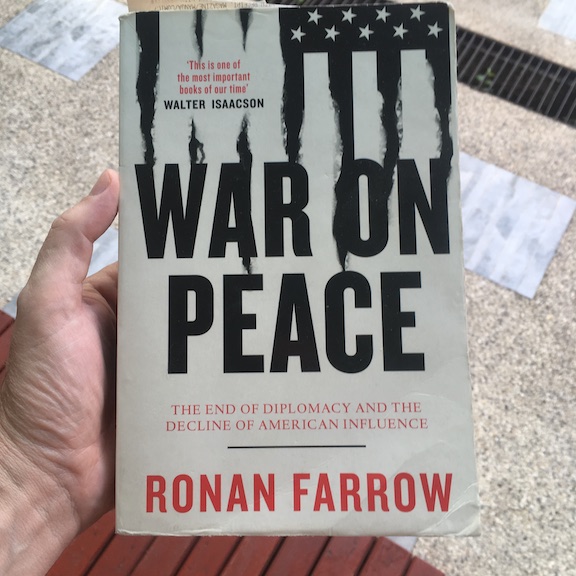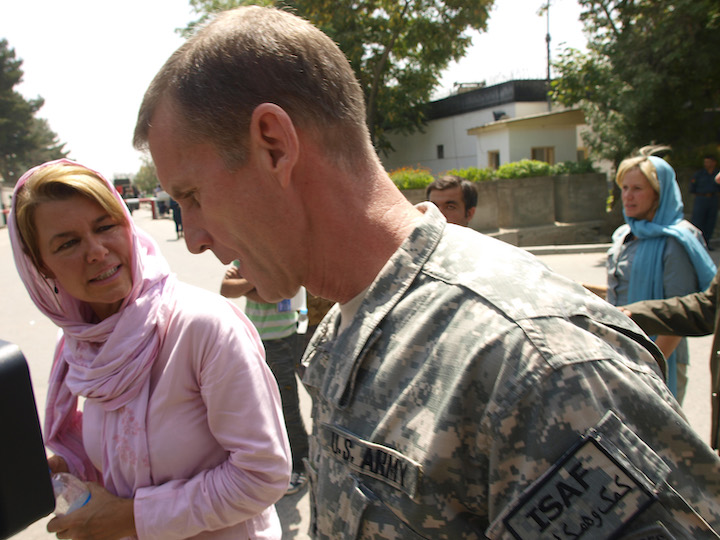
Pai- I’ve recently finished reading Ronan Farrow’s death of American diplomacy narrative War On Peace. I picked up the UK paperback edition at Kunokiniya Books at the Dubai Mall–meaning it had finally passed the UAE’s thought censors to be able to be sold. This process can take many months I’ve been told. I needed something to read while traveling across Sri Lanka and this looked like a good companion.
It is sort of two books in one volume. The first an homage of sorts with necessary criticism of the late Richard Holbrooke. The second half is a series of vignettes of high risk foreign policy successes and blunders through the prism of the Department of State. Having once worked as an editor in Washington, I read reflexively with a critical eye perhaps more than is necessary. I was put off within minutes when on the first page Abdoun is described as a neighborhood of Jordan rather than its capital Amman. Countries don’t have neighbourhoods, cities do, in geographic semantics. I put that aside an delved in to what is overall a quite enjoyable read about what is in reality a depressing subject-the decline of American influence in the world and the militarisation of US foreign policy.
Part of why I found Farrow’s work entertaining was quite personal. I’d intersected with nearly every character in the book in some circumstantial way. The time I encountered Holbrooke, along with Madeline Albright, while working a temp job at the Council on Foreign Relations over a decade ago. The time Stan McChrystal’s Italian carbinieri bodyguards nearly knocked me of while trying to photograph him. The time I waited at Abdul Rashid Dostum’s house in Kabul when he returned from an exile episode. When I went to dinner with General Michael Hayden at a posh midtown Manhattan university club where tipping the staff was forbidden. When I drove through Jowjan province on the way to Turkmenistan exactly as the massacre of Taliban prisoners was taking place in Dasht-i-Leili. This book appealed to me in part because of all the memories it brought back. At the very end one of the last people mentioned in the acknowledgments, a former Obama era foreign policy wunderkind, is the sister of someone who follows me on Instagram. It’s a string of degrees of separation.

Much of what is described in the book is a litany of lost or squandered opportunities where good ideas were put forth that were undercut by a lack of political will or foresight or in the case of Holbrooke, death. There’s one really glaring error where in page 61 he describes Moqtada al-Sadr as an al-Qaeda lader, which could not be more wrong. Al-Sadr was the leader of the eschatological Shia sectarian Jaish al-Mahdi, about as opposite ideologically as AQ as you can get. How that made it through fact checking I’ll never understand. There were some other minor editing issues but this was the only really egregious factual error that I can recall.
Overall, I found War On Peace thoroughly relatable and entertaining, a good travel read. I’ll be leaving it behind in the used book pile at my hotel here in Thailand hoping someone else will pick it up and enjoy it equally.